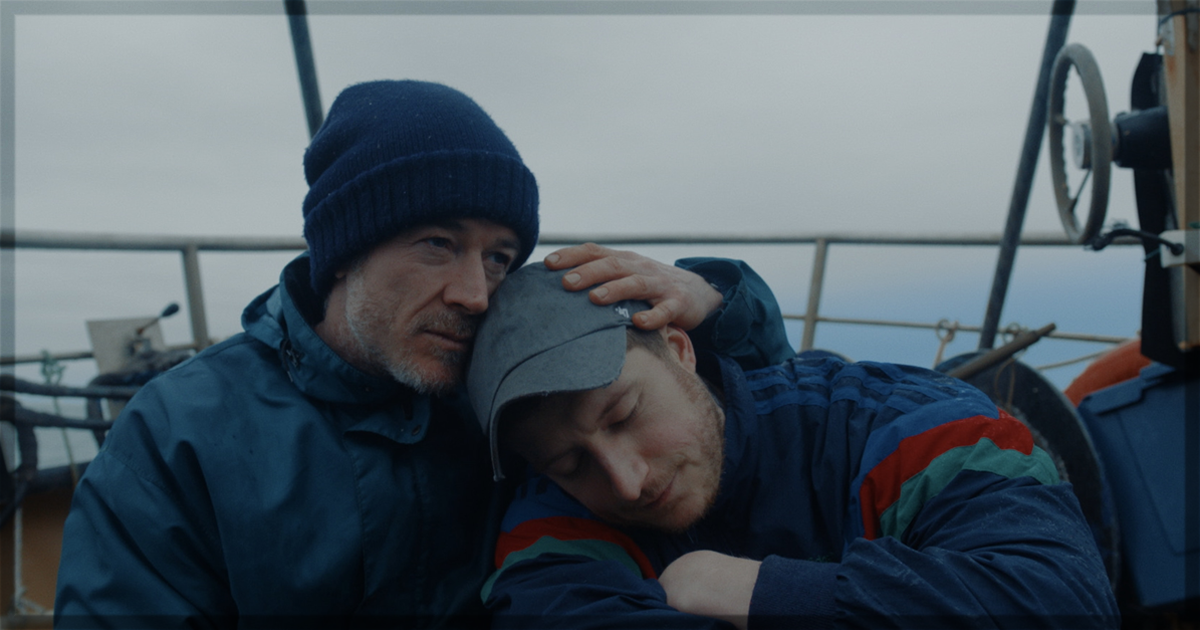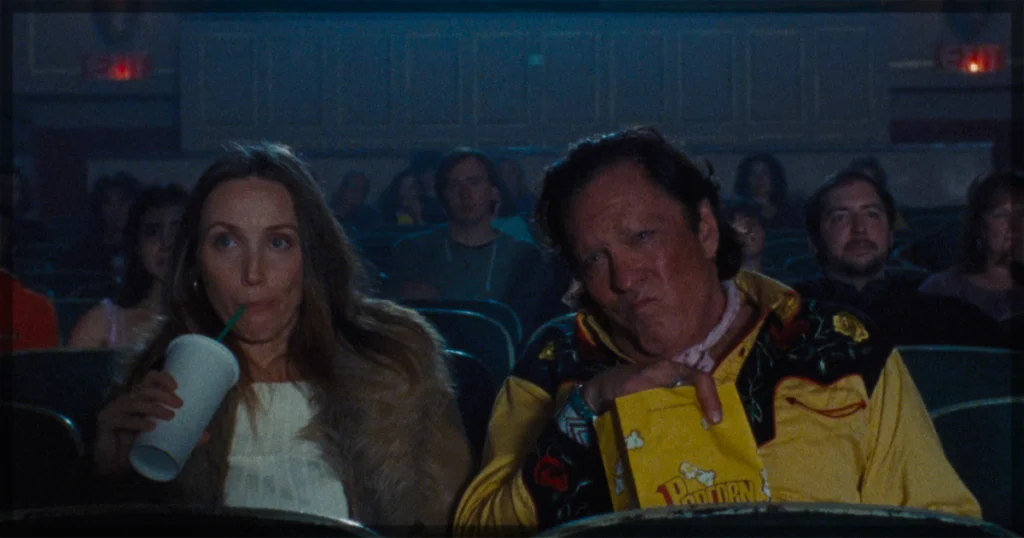The prison of British masculinity is explored in On The Sea, the latest film from writer and director Helen Walsh. On the outside, Jack (Barry Ward) has a stable, traditional life. He has been married to Maggie (Liz White) for decades, and they expected to raise their son Tom (Henry Lawfull) in the family business of raking mussels by hand in their small, close-knit North Wales community. Tom, however, is reluctant to blindly accept the family trade, leading to tensions within the immediate and extended families – Jack’s brother Dyfan (Celyn Jones) has had no problem getting his three sons to follow him into the mussel beds. But just as his son wants more from life, Jack realises his own life might be lacking something when an itinerant deckhand comes to town to help with the various marine jobs. Daniel (Lorne MacFadyen) makes no secret of his attraction to Jack, and on voyages to more profitable fishing grounds, they begin a clandestine affair.
Of course, the courses of secret romances – especially those flouting conventions of church, family, and tradition in remote outposts seemingly detached from modernity – never run smooth. While “love conquers all” carries the day in many stories and real life scenarios, On the Sea does not shy away from the bleak and total impossibility of Jack’s fork in the road. A life dominated by the expectations of religion and patriarchy, both so baked into the local culture that it is hard to extricate truth from centuries of fiction, cannot so easily be shed.
Taking into account the film’s 110-minute run time, Walsh’s script and direction allocates ample narrative space to establish Jack’s life and routine in its unvarying, physically demanding detail. While an accomplished writer and director in film and television, Walsh is most famous as a novelist, and her work has never shied away from the contradictions and difficulties of society, sex, and violence. Her script occasionally errs on the side of the overstated and obvious, but on the whole its frankness in words and actions supports the life-shattering nature of Jack’s journey. Sure, it may take place in the same village he has lived his whole life, but the extremes of emotion, self-discovery, and vulnerability make On the Sea epic in scale and impact.
The performances across the board are natural and believable, communicating the weight and stakes of each development through furtive glances, tight shoulders, challenging questions, and the occasional (and all the more effective for it) touches. This is not to say the film is coy about sex; Jack and Daniel’s love is achingly sensual and unabashedly erotic, and Ward’s and MacFadyen’s performances leave no room for ambiguity in the all-consuming power of their physical and emotional attraction. White takes what could be a thankless role and finds humour and heart, and Lawfull is unafraid to lean into Tom’s irrationality and immaturity in reaction to his high-pressure situation even when it threatens to lose audience sympathy.
Middle aged romances and journeys of discovery are all too uncommon in cinema and wider fiction, so in this regard On the Sea is a refreshing change. In other ways, however, it treads familiar ground. It is perhaps overly tempting to compare On the Sea to Francis Lee’s God’s Own Country, and on the surface there are many similarities: both are dramas centred around contemporary men in rural agricultural-adjacent Britain working in dying professions threatened with (real or perceived) social ostracisation due to their homosexuality – in both films, coming to a head with the arrival of a seasonal itinerant worker stepping in to fill the shoes of those leaving or dying out in the community. While, by direct comparison, Lee’s picture offers something warmer in outlook and tighter in construction, the most interesting fact of this parallel is that both Lee and Walsh found it fit to explore similar situations within a decade of each other.
The settings and characters of God’s Own Country and On the Sea are both very specific to their time and place and remarkably universal. Many viewers will not have grown up LGBTQ+ in traditional, manual professions in remote communities, but the anxieties and pressures of conformity transcend these to imprison men in narrow definitions of acceptable masculinity and patriarchy. Not fitting in might lead to self-actualisation, but it can also lead to social ruin – or worse – and these films refuse to sugarcoat these facts. Jack’s realisation, halfway or more through his life, that there are different options, different ways to love, and different ways to look at the world – even if the action he can take is limited by factors outside his control – is all the more powerful for breaking decades and generations of patterns. There is tragedy here, but there is also beauty.
On the Sea is thorny and often unpleasant, and its miseries veer uncomfortably close to voyeurism. But the film never dives into misery porn, and its genuine affection for Jack, Maggie, Tom, and Daniel elevates them above the status of ciphers that merely look down on how “backwards” some parts of the world are. There is no disdain in Walsh’s film, even as its brutality wears on its characters and viewers.
On The Sea recently played at the Edinburgh International Film Festival.
Learn more about the film at the Edinburgh site for the title.


